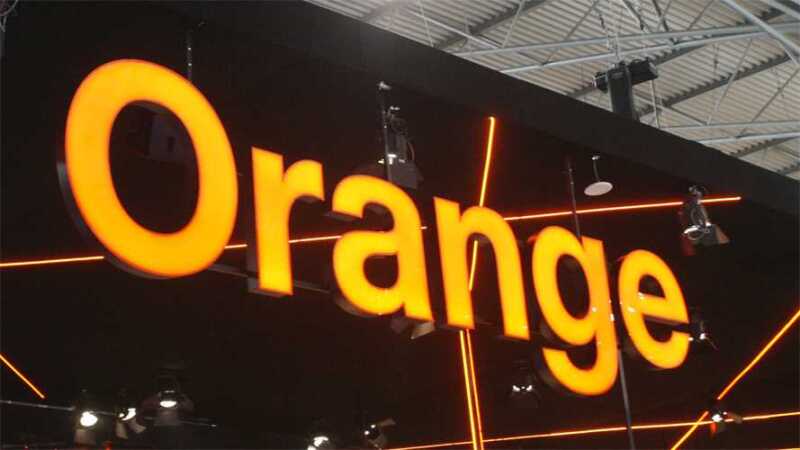Potential Vodafone/Three merger
Agreed: May 2023
Value: up to £15 billion
Status: subject to approval from UK antitrust regulators
Long rumoured to be in the works, a merger between Vodafone and Three UK, the third and fourth biggest operators in the UK, was finally announced in May 2023. The justification for the tie-up is to accelerate 5G rollout in the UK, as well as expanding broadband coverage to small businesses and rural areas in the UK, many of which suffer from poor connectivity relative to the rest of the country.
If approved, the merger would create a brand with a combined value of over £4 billion. This will allow more effective competition at the top of the UK market, where BT enjoys a much bigger market share than its nearest competitors, including EE, Virgin Media and O2 as well as the two potential merging carriers.
This merger comes at a time of changing attitudes from Britain’s competition regulators. After blocking a deal between Three UK and O2 in 2016 due to fears that consolidating the market to that level would harm consumers, regulator Ofcom has reportedly softened its stance on the matter, and it did not take long for a new proposed deal to emerge.
Will it go through? The proposed tie-up has met resistance from multiple sources, particularly Britain’s unions after recent job cuts in the sector, and the deal has cut through to the national press, not helped by the British government asking regulators to keep an eye on price increases from utilities providers, including telcos.
Viasat/Inmarsat merger
Agreed: November 2021
Value: $7.3 billion
Status: cleared by UK and EU regulators and completed in May 2023
US satellite company announced in November 2021 its intention to spend $7.3 billion on acquiring its British rival Inmarsat, over double what its previous owners paid for the company as recently as December 2019. The deal has now been approved by the UK government and the European Commission, leading to its completion in May 2023.
At a time of fragmentation in the satellite market when the deal was agreed, the merger was planned to “create a leading global communications innovator with enhanced scale and scope to affordably, securely and reliably connect the world”, according to the deal announcement, with a particular eye on competing with the many low earth orbit (LEO) projects and companies to have come on the market in recent years.
Regulatory concerns focused on what the tie-up might mean for in-flight connectivity, with the EU launching an in-depth investigation on the market, in which Viasat and Inmarsat are two of the main players. This investigation concluded in 2023 that the market position of the combined company would remain moderate, partly thanks to LEO developments and that there is still room in the market for current competitors as well as future entrants.
In terms of corporate structure, the new company will be led by Mark Dankberg as Chairman and CEO and Guru Gowrappan as President, with a new international base in London to operate alongside the existing corporate HQ in Carlsbad, California.

Eutelsat/OneWeb merger
Agreed: March 2022
Value: around $3.4bn
Status: Expected to close Q3 2023
M&A activity has been widespread in the satellite space in recent years, and this deal is another big one. After gradually upping its stake in its rival in recent years, French company Eutelsat eventually moved for a full merger with British rival OneWeb, in a move which will ease the latter’s debt concerns and help it deliver a delayed rollout of over 650 LEO satellites for internet service provision. The deal is expected to close later in 2023.
The deal is a good example of a merger achieving synergies in the market. OneWeb’s LEO fleet will complement the geostationary fleet managed by Eutelsat. This means, according to Eutelsat’s CEO, that the two companies can achieve greater penetration into the aero and maritime mobility markets, as well as contributing to the expansion of connectivity powered by 5G and cloud technologies.
Orange Belgium acquisition of VOO SA
Agreed: December 2021
Value: $1.8 billion
Status: Approved by antitrust regulators, completed in June 2023
18 months after the deal was revealed, Orange Belgium finally received approval from the European Commission’s antitrust regulators for its 75% acquisition of VOO Saone of the two main providers of fixed telecoms services in the Brussels capital region and Wallonia, the majority French-speaking area of Belgium.
The acquisition of VOO allows Orange to deploy a multi-gigabit network upgrade plan across a wider area of Belgium, with a particular focus on the areas currently covered by VOO in Brussels and Wallonia.
As a condition of the deal getting through, Orange has agreed to allow fellow Belgian operator Telenet, which primarily operates in Flanders, to enter the Walloon market by providing access to its fixed network infrastructure for fifteen years. There is a reciprocal arrangement for Orange to access Telenet’s networks, meaning both operators can benefit from the other’s HFC and fibre-to-the-home (FTTH) setups.
The Orange-VOO tie-up is not the only deal to go through recently in the active Belgian connectivity sector. As well as moving into Wallonia via Orange infrastructure, Telenet also recently received EC clearance for a joint venture with Fluvius, a utilities provider in Flanders, to spend €2 billion on a FTTH rollout in Belgium. The project aims to deliver up to 10Gb of fibre speed to 78% of households in Flanders and parts of Brussels.
Altice acquires 50% of Vodafone’s German FTTH business
Agreed: October 2022
Value: $1.2 billion
Status: Completed March 2023
French company Altice announced plans in October 2022 to acquire half of Vodafone’s FTTH operations in Germany - and now the deal is complete, the merged operation is looking to invest €7 billion on deploying to 7 million homes in the country.
Financed partially by €4.6 billion of institutional debt facilities, the network upgrade will improve Vodafone’s existing hybrid fibre cable infrastructure, which is acquired from Kabel Deutschland in 2013. This network primarily connects apartments within blocks owned by the large housing associations typical of the German residential market, and up to 80% of the upcoming investment is earmarked for upgrading these existing connections to 1Gbps fibre networks. The network will be built by Geodesia, which is a construction-focused subsidiary company of Altice.
In terms of deal structure, upgrades will be deployed by a newly created company called FibreCo, jointly owned by Vodafone and Altice. Payments from Altice to Vodafone are partially performance-based. A €120 million initial payment will be followed by the rest of the agreed maximum of €1.2 billion as network buildout is completed.
Orange/MasMovil merger
Agreed: June 2022
Value: $18.6 billion
Status: Under investigation by the European Commission
Announced in July 2022, the $18.6 billion tie-up between Orange and MasMovil to combine their Spanish operations has recently come under the eye of the European Commission, who announced in June the merger will be subject to an in-depth investigation due to antitrust fears.
The second and fourth-largest operators in Spain, Orange and MasMobil are looking to combine their operations to challenge Telefonica, which currently dominates the Spanish market. The proposed structure of the merger is a 50-50 joint enterprise.
MasMovil’s fibre operations, which reached 27 million homes in January 2022, were of particular interest to Orange, which has around 11 million mobile subscribers. If approved, the merger will reduce the number of major operators in the Spanish market to three (the proposed combined operation plus Movistar and Vodafone) as well as allowing larger-scale investment in FTTH and 5G rollouts.
As for the upcoming investigation, the Commission believes that “as result of the transaction, Orange and MasMovil would have the ability and incentive to restrict access of virtual operators to wholesale mobile network and wholesale fixed network access services.” A decision on whether to allow the merger must be made by 21 August 2023.

TIM’s fixed assets: bids from KKR and CDP Equity/Macquarie Infrastructure and Real Assets
Status: bidding stage
Value: Up to €31 billion
In an attempt to reduce its €25 billion pile of debt and avoid a sale of the entire business, Telecom Italia will merge its fixed-line network assets into a single NetCo company in order to offload it to investors. It is proving an attractive proposition – multiple investors and consortia have either expressed an interest or submitted bids. As of June 2023, TIM’s board of directors were reviewing two separate bids for the assets, which the carrier values at €31 billion, a valuation not yet met by any bidders so far.
The two bidders to have submitted non-binding offers are US investment company KKR – which has long been interested in acquiring the entirety of TIM – and a consortium of CDP Equity and Macquarie Infrastructure and Real Assets. The TIM board currently favours the KKR bid and Capacity reported in June that the telco has begun exclusive negotiations with the investor. TIM also received a €20 billion bid from Cassa Depositi e Prestiti, but this fell short of the valuation sought by the carrier.
It is unusual for a network of fixed assets with the scale, coverage and growth potential of NetCo to become available to buyers, which explains the keen interest. In particular, the Sparkle submarine cable division has been busy building out its network, including the recent landing of the BlueMed cable in Genoa, which makes use of the Genoa Landing platform to open up a new hub for Middle East – Europe traffic.
Capacity Europe 2023, the continent’s largest meeting for telecoms and ICT infrastructure, has a series of Spotlight stages dedicated to pressing issues in connectivity today – including Capacity: Invest, satellites, subsea, fibre and more. Take a look at the topics we’ll cover here.






